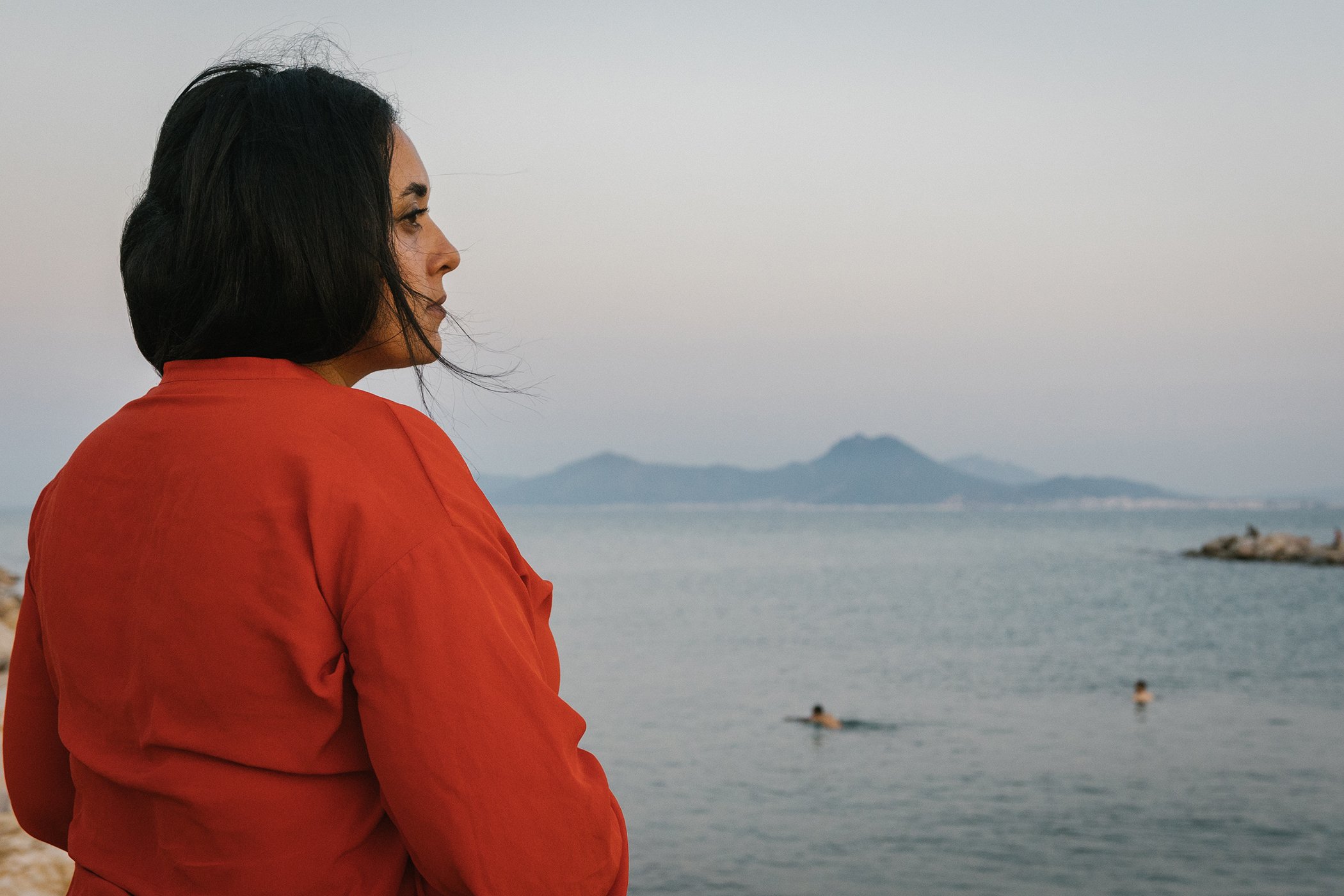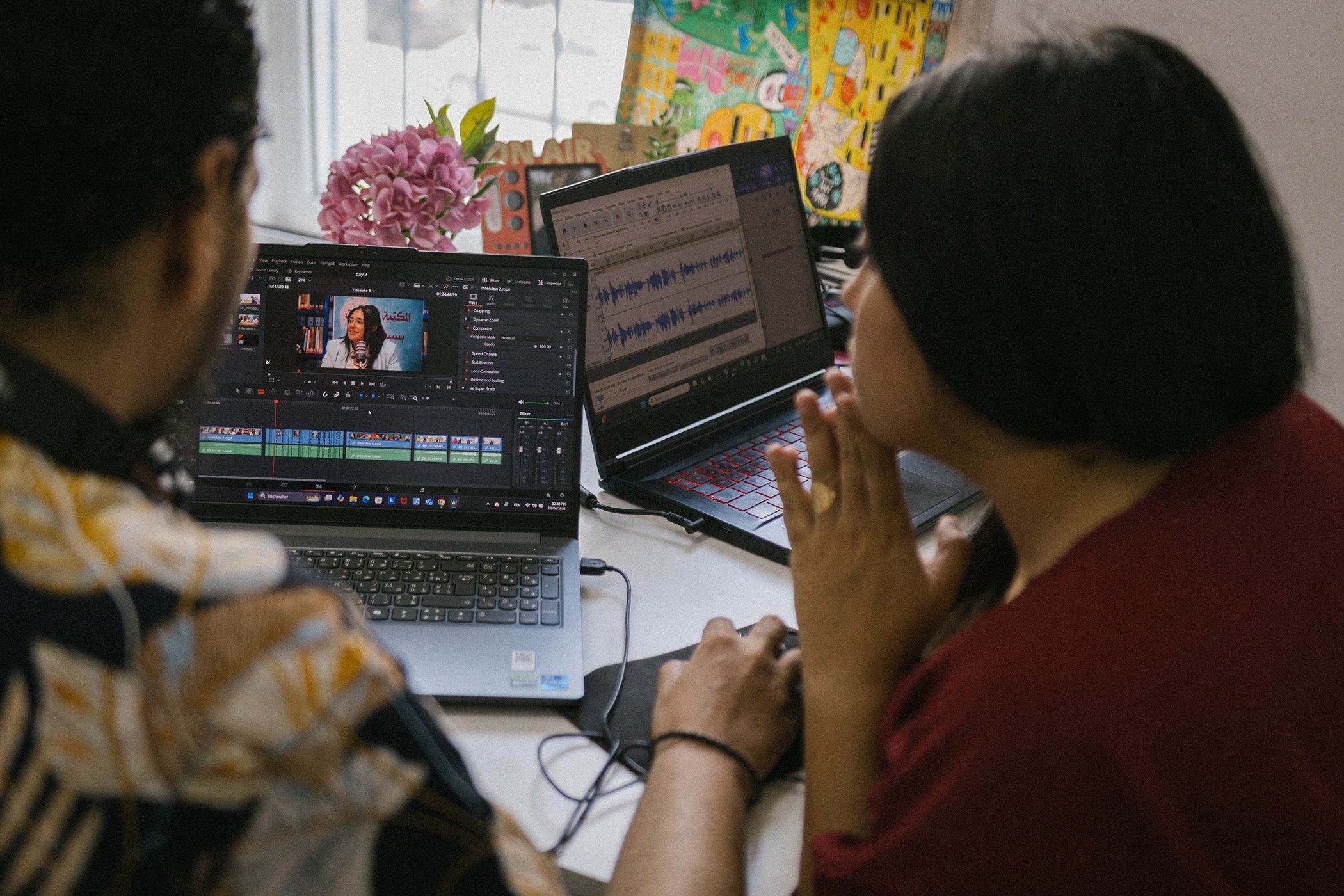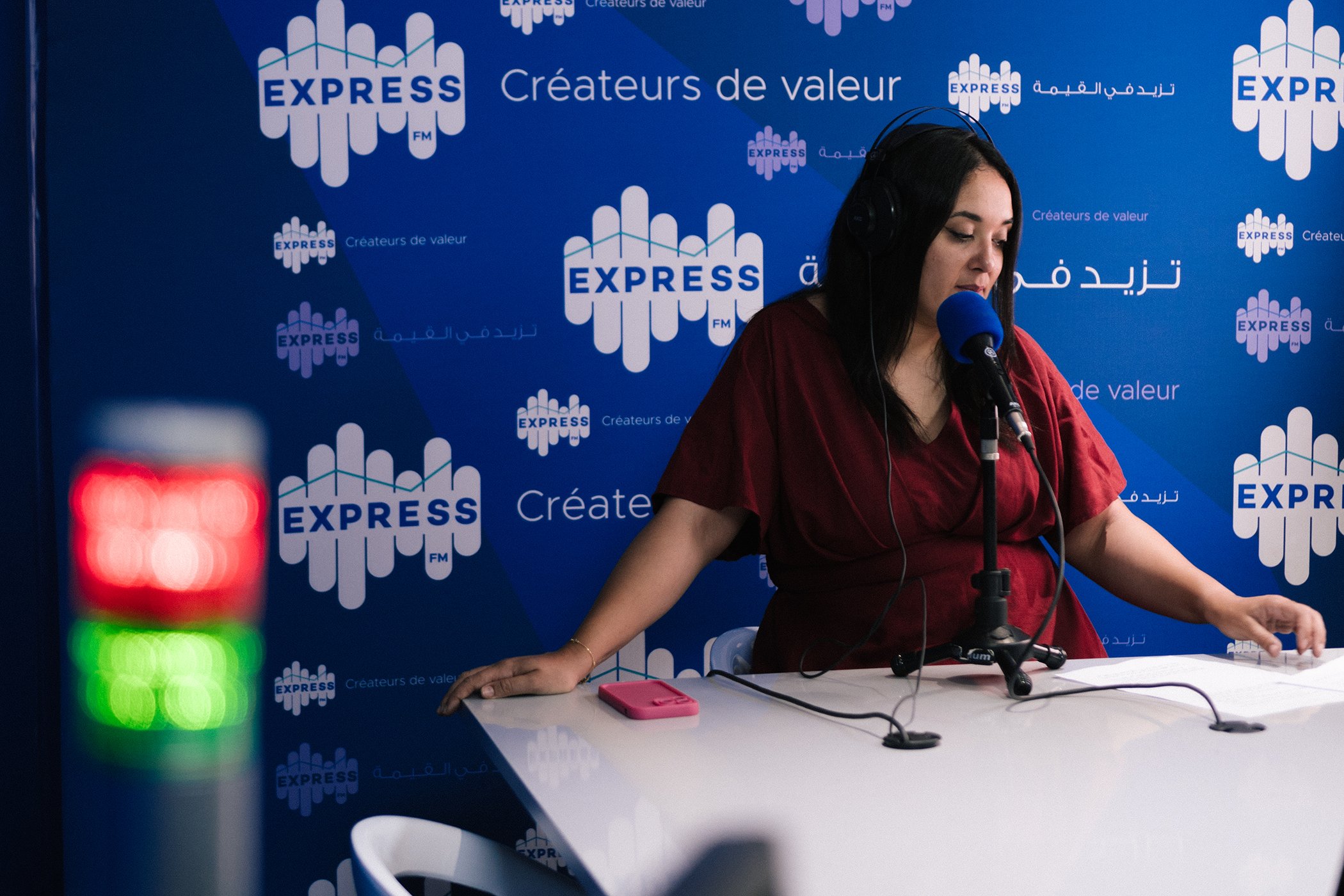Nada Mansour is a journalist, radio host, and media development expert based in Tunisia, where civic space is repressed. She works for a private radio station called Express FM, which benefits from the International Fund for Public Interest Media (IFPIM). The work of independent media, like Express FM, is crucial in Tunisia where there have been threats to freedom of association and freedom of the press, and fewer protections for journalists. Independent media is under severe economic strain and is disappearing on a large scale the world over. IFPIM is a multilateral initiative backing independent journalism in low- and middle-income countries. IFPIM works to strengthen access to ethical, fact-based journalism by increasing funding for public interest media and promoting sustainable, independent media systems.
In her own words, Mansour shares the highlights and challenges of doing journalism in the Tunisian context and the importance of support from the International Fund.
I’m Nada Mansour, a journalist, radio host, and media development expert based in Tunisia.
I’ve spent the past 15 years using media as a tool to amplify the voices of marginalized communities and bring untold stories to the forefront. I see myself as a connector — between people, issues, and impact. I work at Express FM, one of Tunisia’s leading private radio stations, where I develop editorial formats and lead content strategies that aim to inform, engage, and empower.
I care deeply about equity, access, and inclusion — especially in the media.
I believe everyone has the right to be seen, heard, and understood. I’m particularly committed to telling the stories of communities that are usually left out of the national conversation — people living in the interior regions of Tunisia, women in rural areas, youth with no access to opportunities, and individuals who challenge dominant narratives. I also believe in the power of public interest journalism and ethical storytelling as tools to drive real change.
 Nada Mansour takes a break from painting on the coast of La Goulette in Tunisia, where the landscape offers both inspiration and a deep emotional connection to her background. Pictured on June 24, 2025.
Nada Mansour takes a break from painting on the coast of La Goulette in Tunisia, where the landscape offers both inspiration and a deep emotional connection to her background. Pictured on June 24, 2025.
I didn’t grow up dreaming of being a journalist. I actually trained as a chemist.
But I was always drawn to storytelling. In 2011, I made the shift to radio, and something clicked. I realized I could use my voice — and more importantly, create space for others to use theirs — to spark reflection, debate, and hopefully change. The experience has been both humbling and powerful. Journalism has taken me into forgotten towns, made me sit on the floor of people’s homes, listen to their struggles, and carry their words to a wider audience.
One of the most meaningful moments of impact I've witnessed came through the mobile radio show I host on Express FM. In one episode, we focused on the archaeological site of Thelpet in the Kasserine region — one of Tunisia’s most historically significant yet overlooked heritage sites. The episode shed light on the site’s neglected state, the lack of preservation efforts, and the potential for local development through cultural tourism. Shortly after the program aired, the Minister of Tourism visited the region and announced that expert teams would be deployed to conduct assessments of historical and natural sites, starting with Thelpet.
He also stated that selected sites would receive dedicated funding and could be designated as investment-ready tourism zones. It was a clear moment of change sparked by journalism. We gave visibility to a forgotten place, and the reaction was immediate. For me, it was more than professional success — it was proof that giving a voice to neglected regions can translate into real policy attention and, potentially, long-term development for the people who live there.
As I told my team, this is just the beginning. We’ll continue to follow up to ensure that the promises turn into concrete opportunities for the people of Haidra and Thelpet.
In Tunisia, the civic space continues to evolve…
… and is shaped by both national priorities and global challenges. While the media landscape may sometimes require greater caution and responsibility, there remains an ongoing commitment among many professionals, especially in media and civil society, to serve the public with integrity and purpose.
For many, it is a deep sense of responsibility toward the country and its people that drives the effort to ensure that all voices are heard, especially those from underrepresented or marginalized communities. The goal is not confrontation, but contribution: to participate in building a Tunisia that reflects the hopes and concerns of its citizens.
Even within a sensitive context, many continue to work constructively to shed light on issues that matter, including economic inclusion, social development, and the aspirations of youth.
In the end, it is this love for Tunisia and belief in its potential that motivates so many to keep going, even when the path requires patience, strategy, and resilience.
The International Fund’s support was a game-changer.
 Nada Mansour reviews video and sound levels during a post production session with her colleagues at Express FM in Tunisia on June 24, 2025.
Nada Mansour reviews video and sound levels during a post production session with her colleagues at Express FM in Tunisia on June 24, 2025.
It allowed us to take journalism out of the studio and into the field.
As a result, we launched a mobile radio project that visits marginalized regions, not just to report on them, but to listen. We produced high-quality video and audio content in areas where no media had ever gone. We created safe spaces for dialogue, featured youth voices, and even worked with local partners to turn some insights into concrete projects.
In a context where funding is scarce and independence is fragile, support like IFPIM’s is not just helpful — it’s vital. It gives journalists the means to do work that is meaningful, safe, and impactful without relying on political or commercial agendas.
Global citizens can play a valuable role in supporting journalists and media professionals in Tunisia…
…by standing in solidarity with independent journalism, promoting access to credible information, and supporting initiatives that foster media literacy, especially among young people. International collaboration, whether through training, funding, or technical support, can also help strengthen journalistic standards and expand spaces for dialogue.
What’s most helpful is support that respects local context and amplifies the voices of those working on the ground, rather than speaking on their behalf. Partnerships based on trust and mutual learning can create long-term impact.
 A recording light signals live broadcasting, as Nada Mansour presents on air at the Express FM offices in Tunisia on June 24, 2025.
A recording light signals live broadcasting, as Nada Mansour presents on air at the Express FM offices in Tunisia on June 24, 2025.
This article, as narrated to Gugulethu Mhlungu, has been slightly edited for clarity.
The 2025-2026 In My Own Words series is part of Global Citizen’s grant-funded content.